In search of the best Alishan teas
Alishan (Ali Mountain) High Mountain Tea is renowned as one of the most distinguished high-mountain teas in the world. It is mainly cultivated in Fanlu (番路), Zhuqi (竹崎), Meishan (梅山), and Dapu (大埔) within the Chiayi province of Taiwan. High mountain tea includes lightly fermented and roasted Oolong tea with unique flavors influenced by high-altitude environments. It has an elegant and delicate aroma that makes it stand out from other teas.
Nestled in the misty mountains of Alishan, tea plants grow in the perfect conditions at an altitude between 1000 and 1600 meters, surrounded by ethereal clouds and fog all year round. High altitudes lead to a significant temperature difference between day and night, resulting in less bitterness (catechins) and increased sweetness (theanine and soluble nitrogen) in the tea leaves. The cool climate slows down the growth of tea leaves, retaining their tenderness and developing refined flavors with a high pectin content for mellower tastes.

Our trip to Shizhuo Alishan – for the best Alishan teas
The most renowned and finest Alishan tea is the Zhu Lu tea (Dewdrop tea, 珠露茶) from Shizhuo in the Zhuqi region. Because of its exceptional quality and flavor, it is known as the "Green Gold" of Zhuqi. Only teas produced in the Shizhou area can be called “Zhu Lu tea.”
In October 2023, we embarked on an expedition to the Shizhuo tea region along the Alishan Highway (Provincial Highway No. 18), between the 59K and 65K markers, on the outskirts of the Yushan National Park. We stayed at a lovely guesthouse that was nestled within a tea factory surrounded by mountains. This was not just a trip but a deep dive into the heart of tea country with an aim for the “Green Gold”.
 (Breakfast in the tea farmer’s homeyard)
(Breakfast in the tea farmer’s homeyard)
 (Shizhuo Trail of Tea – about 1400-1700m)
(Shizhuo Trail of Tea – about 1400-1700m)
 (Shizhuo Tea Area – 1400-1700m)
(Shizhuo Tea Area – 1400-1700m)
After a 15-minute drive from our accommodation, we arrived at a unique tea garden, which is only operated by the local Tsou tribe. The Tsou people, with a current population of around 7,000, have been living in the Alishan area for thousands of years. The Tsou tribe has a fascinating history dating back to the Dutch era (1624-1662) in Taiwan. It was interesting to learn that some Alishan people related to the Tsou tribe still have Dutch ancestry.
 (Internet photo, Tsou costume)
(Internet photo, Tsou costume)
It was a quiet day before the typhoon hit when we visited this tea garden; tourism was stopped from entering the Alishan area. We were fortunate enough to meet Mr. Cheng in person, the founder of Tsou's Tea Garden, which is also a hub promoting Tsou’s history and culture. Cheng told us his vision of creating more meaningful job opportunities for the Tsou indigenous people, particularly the younger generation, to help them achieve their dreams in their hometown.

The tea and coffee produced at this garden are high-quality boutique varieties, reflecting their dedication to making superior products while preserving and celebrating the cultural heritage of the Tsou tribe. Cheng's vision is inspiring, and his passion for creating exceptional local products is evident in every sip we take.
Our mission was accomplished when we acquired the "Green Gold"; Zhu Lu Oolongs and teas made by the local Tsou tribe upon leaving Alishan. Our favorites were the Jin Xuan High Mountain Oolong in Shizhuo and Tsou's newly renowned Alishan Black tea. The latter uses an innovative process that combines the benefits of oolong and black tea-making methods. It has a matured fruity aroma and deep sweetness while maintaining a high-mountain aromatic profile. We thoroughly enjoyed this tea trip to Alishan as wecould deeply appreciate the cultural heritage, Taiwanese tea innovations, and natural beauty all in one place.
The Mastery of Taiwanese High Mountain Teas
In Taiwan, each high mountain develops its unique growing conditions. This profound relationship between tea and its environment highlights the importance of terroir, where the essence of the landscape is infused into every leaf.
However, modern machines cannot operate in high-altitude areas, making hand-picking only possible. This, in turn, leads to higher costs and lower production volumes. These teas are primarily consumed within Taiwan; only tiny quantities are exported by experienced Taiwanese tea experts. Some teas claimed to be from Taiwan are grown in Vietnam and Thailand and then shipped to Taiwan to meet the high demand for local bubble tea consumption.
At Cha Moods, we prioritize authenticity in all aspects of our business. As such, our Taiwan-grown teas are sourced locally. Our teas undergo strict quality control and
traceability certification to ensure every cup in your hands is pesticide-free, authentic, meets high standards and tasty!
How to Brew High Mountain tea:
Gongfucha style: Brew 5 grams with 100ml water (follow 1g : 20-30ml) at 100℃ in a pre-warmed porcelain Gaiwan or Yixing clay pot. The first brew, without washing, steeps for 60 seconds, as it contains the best aroma and is clean enough to drink directly. Increase by 10 seconds for each of the following brewing. Maintain the water hot and pour it from a height (about 10cm from Gaiwan) for best results.
Western Style: 3-5g with 200-250ml water at 100℃ for 4-6 mins, can be re-steeped multiple times.
Our Taiwanese Oolong Teas Collection:
Visit our Taiwan tea collection to discover Alishan tea and more authentic Taiwanese oolong teas.
Enjoy 10% off for your first purchase after signing up to our subscription list.
The Cha Moods team is honored to offer a selection of authentic teas, from high quality to competition level, carefully crafted by 5-star tea factories and award-winning tea masters from its core production regions.
We are happy to provide you with more detailed information and assist you in
exploring new teas that can enrich your tea journey and bring you more joy in life.
